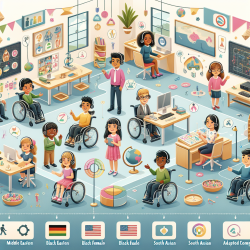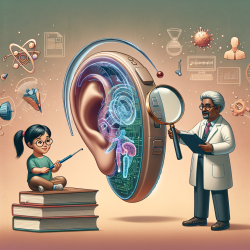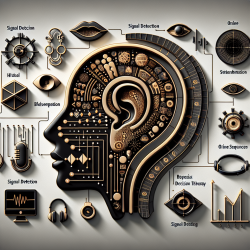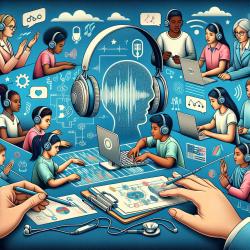Empowering Every Student: The Transformative Power of Accommodations in Education
In the ever-evolving landscape of education, the concept of accommodations has undergone a significant transformation. Once considered exclusive to students with special education plans, accommodations are now recognized as beneficial for all students. This shift is a testament to the growing understanding of personalized learning and the commitment to inclusive education.
The Universal Benefit of Accommodations
Accommodations are no longer viewed as a privilege but as a right that supports the diverse needs of all students. As research by Bolt and Thurlow (2004) indicates, accommodations such as extended time, alternative settings, and read-aloud options are commonly implemented to enhance learning outcomes. These strategies not only assist students with exceptionalities but also create a more inclusive learning environment for everyone.
Principles of Accommodation
Every student deserves an education that respects their individual needs and strengths. The principles of accommodation emphasize the importance of designing learning environments that are inclusive and responsive to the needs of all students. This involves systemic and individual accommodations that actively support students' learning experiences.
- Learning outcomes and assessments should be tailored to respect each student's unique needs.
- Students should fully participate in a common learning environment alongside their peers.
- Accommodations should be implemented when the status quo does not serve the student's best interests.
Progress Monitoring and Student Success
Progress monitoring is a powerful tool that allows educators to track student achievement and make informed instructional decisions. By regularly assessing academic performance, teachers can adjust their strategies to better meet the needs of their students. This approach not only supports individual learning goals but also fosters a culture of continuous improvement.
Categories of Accommodations
Accommodations can be categorized into four main domains: presentation, response, setting, and timing/scheduling. Each domain addresses specific aspects of the learning process and offers tailored support to students.
- Presentation: Adjustments in how content is delivered, such as using large print or sign language.
- Response: Alternative ways for students to demonstrate their knowledge, like using a scribe or communication device.
- Setting: Changes in the learning environment, such as providing a quiet space or individual assessment.
- Timing/Scheduling: Flexibility in assessment timing, allowing for extended time or breaks.
The Role of Educators and ESS Teams
Educators and Education Support Services (ESS) teams play a crucial role in determining appropriate accommodations for students. By considering each student's strengths, challenges, and preferences, they ensure that accommodations are effectively tailored to enhance learning outcomes. Involving students in this process empowers them as self-advocates and fosters a sense of ownership over their education.
Conclusion
Accommodations are more than just educational tools; they are a reflection of our commitment to equity and inclusion. By embracing the diverse needs of students and providing tailored support, we create a learning environment where every student can thrive. For more information, please follow this link.










